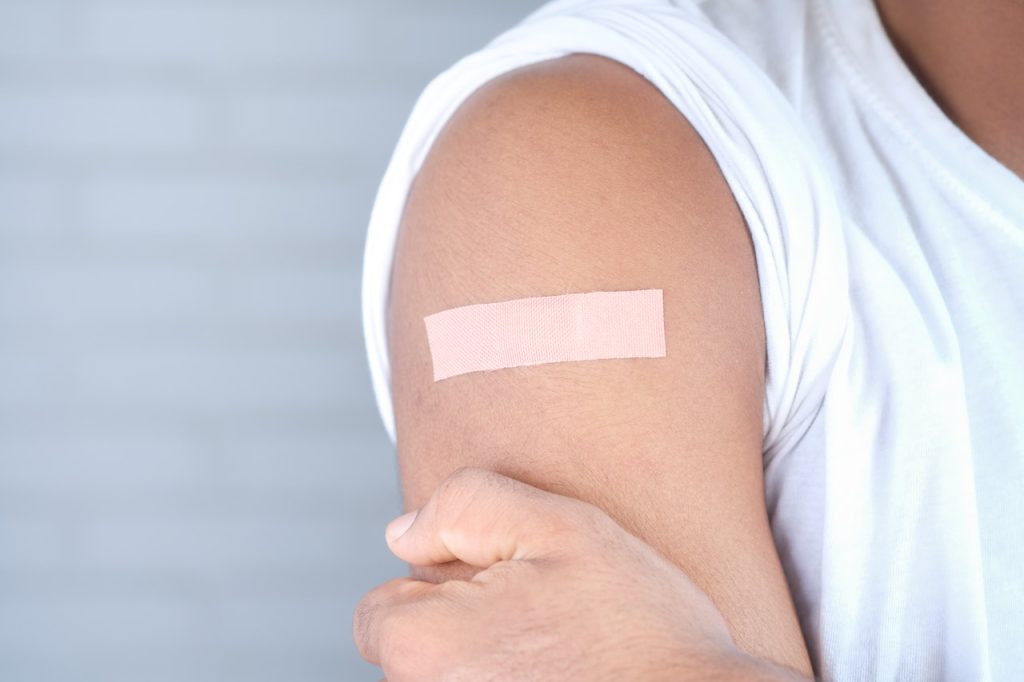From birth, we’re constantly exposed to various viruses and bacteria, some of which can make us sick. Our body’s immune system does its best to protect us against infections and diseases all on its own. However, vaccines offer a much stronger defense. Vaccines are critical components of primary healthcare in society because they save lives and help prevent the spreading of infectious and even deadly diseases. Despite these advantages, some people are hesitant to get vaccinated (or get their children vaccinated). But why? Well, one reason is health and safety reasons, especially allergic reactions. It’s crucial to have an understanding of the truth behind vaccine allergies and build confidence in the safety of vaccines.
Let’s dive in!
What are Vaccine Allergies?
First, I want to note that allergic reactions to vaccines are different from side effects. Fatigue, redness at the injection site, and muscle soreness are all side effects of vaccinations. An allergy, on the other hand, is your body’s reaction to foreign substances. Allergies can range from mild reactions to severe reactions.
Anaphylaxis is one of the more well-known severe vaccine allergies. It’s a potentially life-threatening allergic reaction that happens minutes after receiving a vaccine. Anaphylaxis occurs after your body’s immune system overreacts to the immunization.
The signs and symptoms of anaphylaxis are:
- Swelling of the throat, tongue, or face.
- Rashes or hives, which may include mucus membranes.
- Breathing problems like wheezing, shortness of breath, or coughing.
- A drop in your blood pressure.
I want to emphasize that anaphylaxis is very rare. According to the WHO, the reaction occurs at a rate of one case every million doses. Yes, you literally have a one-in-a-million chance of experiencing anaphylaxis.

Treatment of Anaphylaxis
If you experience anaphylactic shock, a healthcare provider will administer epinephrine, steroids, or antihistamines to reverse the reaction.
Early treatment is vital to a positive health outcome. This is why your healthcare provider will probably ask you to wait at the clinic for about 15 minutes after getting a vaccine. They want to monitor you in the unlikely event that you have an adverse reaction.
Are Severe Vaccine Allergies Common?
As I mentioned earlier, severe allergic reactions are rare. It’s also worth noting that the risks you face from not getting vaccinated are far more threatening than any vaccine itself. For example, the flu shot is unlikely to harm you, but the flu certainly can, especially if it progresses into pneumonia. The COVID-19 vaccine won’t wreak havoc on your body, but COVID-19 very well might.
However, just like any other medication, vaccine side effects (not allergies) can occur after getting a vaccine. Most side effects are mild and last for a few days, max.
The most common side effects of vaccination are:
- Soreness, redness, or swelling in the vaccinated area.
- Mild fever.
- Fatigue.
- Headache.
- Muscle pain.
- Chills.
- Joint pain.
Are Vaccines Safe?
Yes, vaccines are safe. In the United States, we have a long-standing vaccine safety system and safeguards to ensure that vaccines are as safe as possible. Vaccine ingredients are stringently tested and vaccines are FDA-approved.
Before a vaccine is administered, several steps are taken to ensure it’s safe. A vaccine must first go through a detailed research process in labs run by scientists and medical experts who evaluate public health priorities. This process can take several years, and the FDA uses the results from the labs before it starts the clinical trials.

The clinical trials involve testing people who volunteer to get vaccinated. The trial goes through the following phases.
- Phase 1: A small number of individuals take the candidate vaccine. Scientists use this process to identify any response it provokes toward the volunteers and see if it’s safe.
- Phase 2: A larger group of people, extending to a hundred, are tested as the researchers continue to assess the safety and immune response.
- Phase 3: A larger group of more than 1,000 people are tested. This helps determine rare side effects that cannot be seen in smaller groups.
The clinical trials aim to determine if the vaccine is safe, what dose works best, and how the immune system reacts to the vaccine. When the vaccine passes the clinical trial and regulatory approval, it’s considered safe for manufacturing and administering.
Vaccines are continuously tested for quality and safety even after approval and manufacturing. The FDA and CDC monitor vaccines and track any unusual patterns and side effects relating to the vaccine. It doesn’t end once the vaccine is made available to the public.
Can I Receive a Vaccine if I Have Allergies?
If you’re allergic to an ingredient that you think might be present in a vaccine, you should talk to your healthcare provider before getting it. If necessary, your healthcare provider will suggest how you can stay protected without exposing yourself to that allergen. But even with vaccine allergies, severe reactions are uncommon. For example, people who have egg allergies are sometimes hesitant to get the flu shot, which is manufactured using egg-based technology. However, the rate of anaphylaxis is about 1.31 per every one million vaccine doses administered. In other words, even if you have an egg allergy, more than likely, the vaccine won’t harm you.
Vaccines remain the most effective way to prevent infection, severe diseases, and hospitalization. They are, hands down, the safest and most powerful way to protect not only yourself but the people you come into contact with. Of course, talk to your healthcare provider if you have any concerns. But know that vaccine allergies and anaphylaxis are incredibly rare. The benefits of vaccines heavily outweigh the potential risks.













